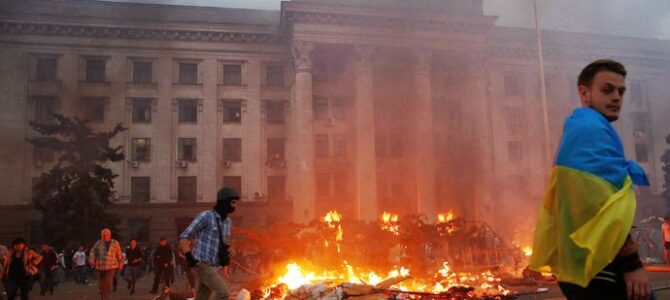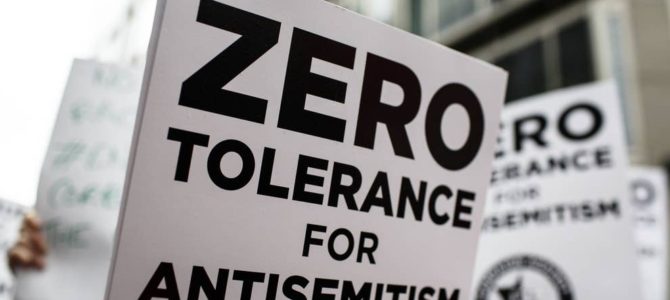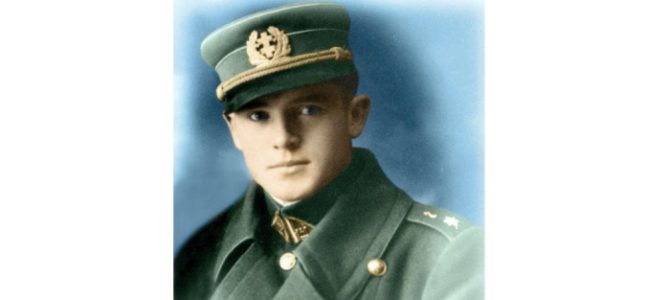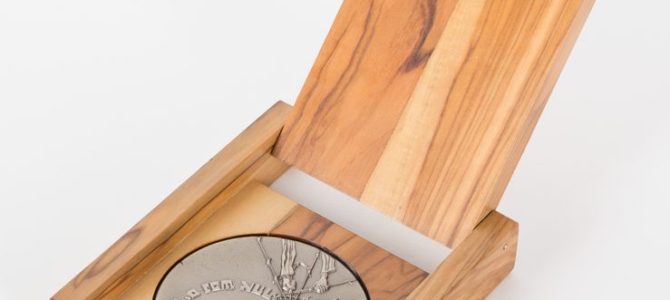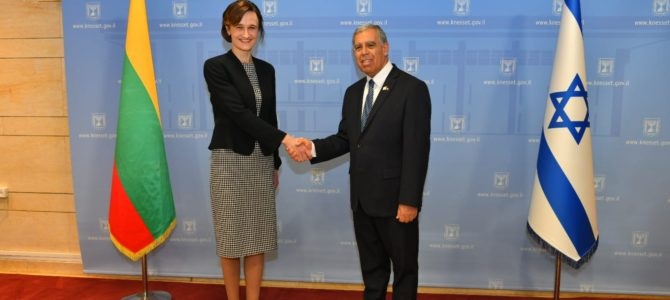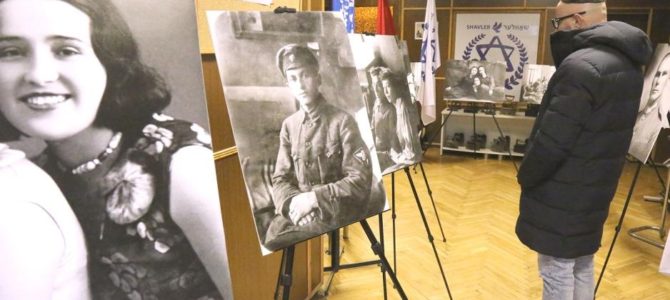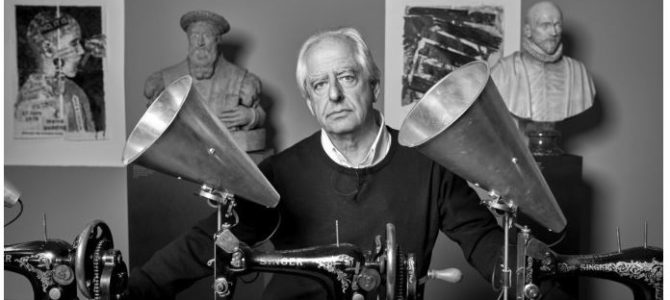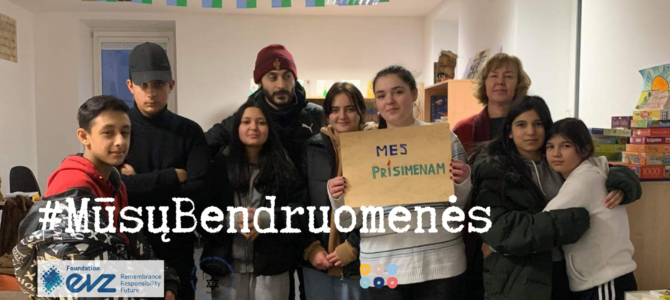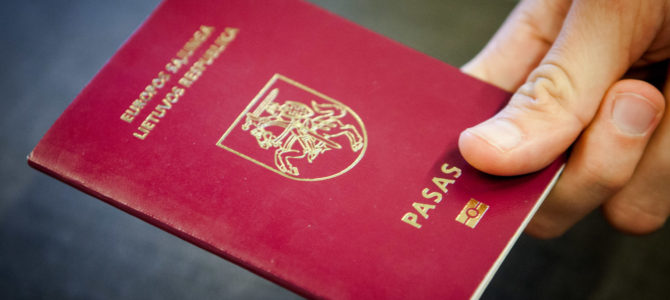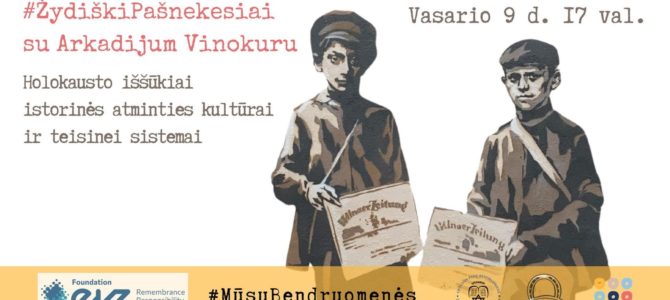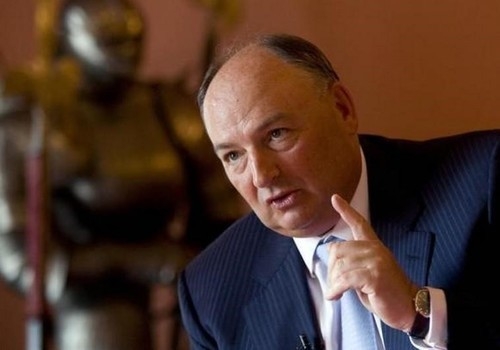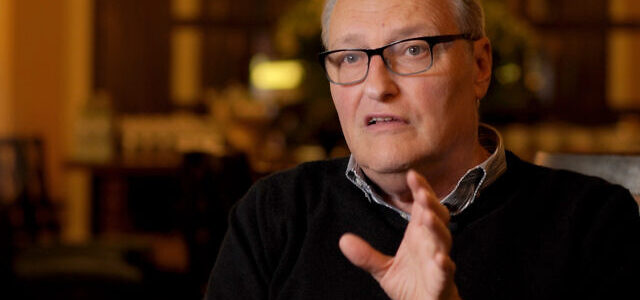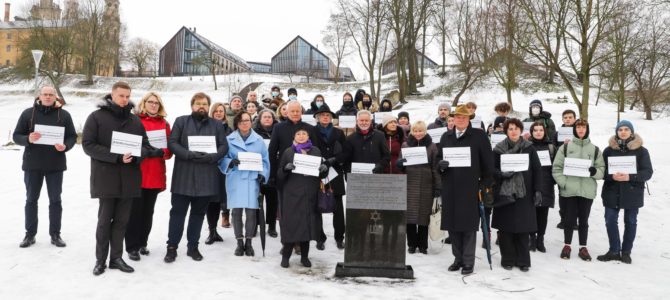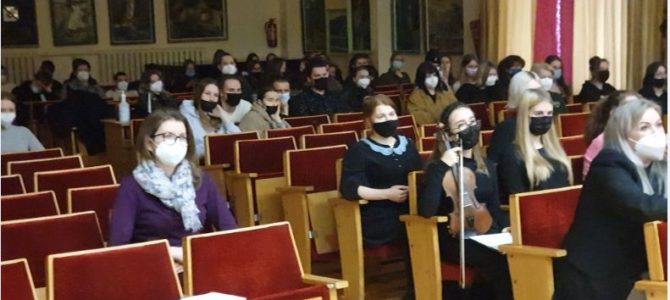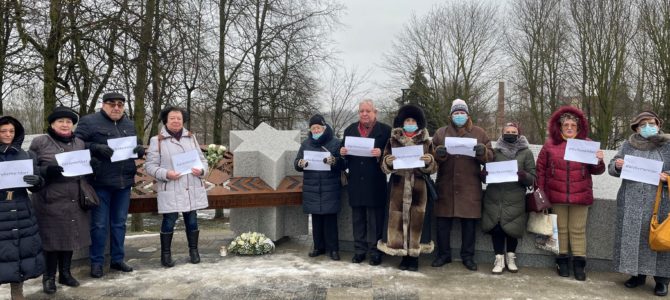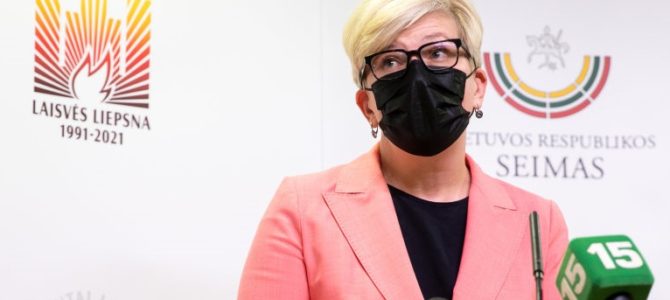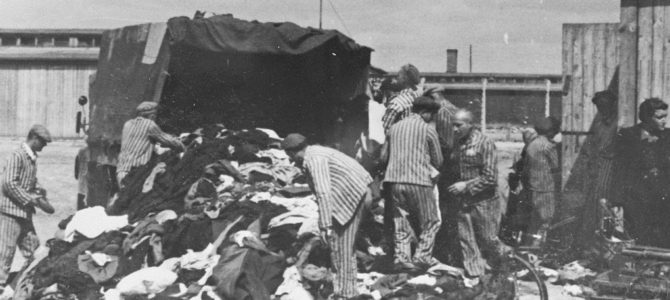Note: Postponed due to illness. A later date for the discussion will be announced.
With the majority of people in Lithuania appearing to support the Ukraine in the current conflict with Russia, Israel’s position doesn’t seem to make sense. At the same time, the majority population of Lithuania is questioning the Lithuania Jewish Community’s position regarding the war.
To address these questions and to discuss the atrocious current events coming out of the war, the #ŽydiškiPašnekesiai discussion club is holding its fifth round entitled “What do the Lithuanian ethnic minority communities think about Russia’s aggression against the Ukraine? The position of the Lithuanian Jewish Community and of Israel.”
The panel discussion will take place at the Bagel Shop Café located at Pylimo street no. 4 in Vilnius on Wednesday, March 16. You are invited to attend in person or watch on facebook. Speakers will include conservative Lithuanian MP Emanuelis Zingeris, cultural historian Violeta Davoliūtė, Lithuanian Jewish Community chairwoman Faina Kukliansky and a surprise guest. Arkadijus Vinokuras will serve as moderator on the panel. The discussion will take place in the Lithuanian language.
For more information and to view live, see the announcement on facebook here.
Note: Postponed due to illness. A later date for the discussion will be announced.


